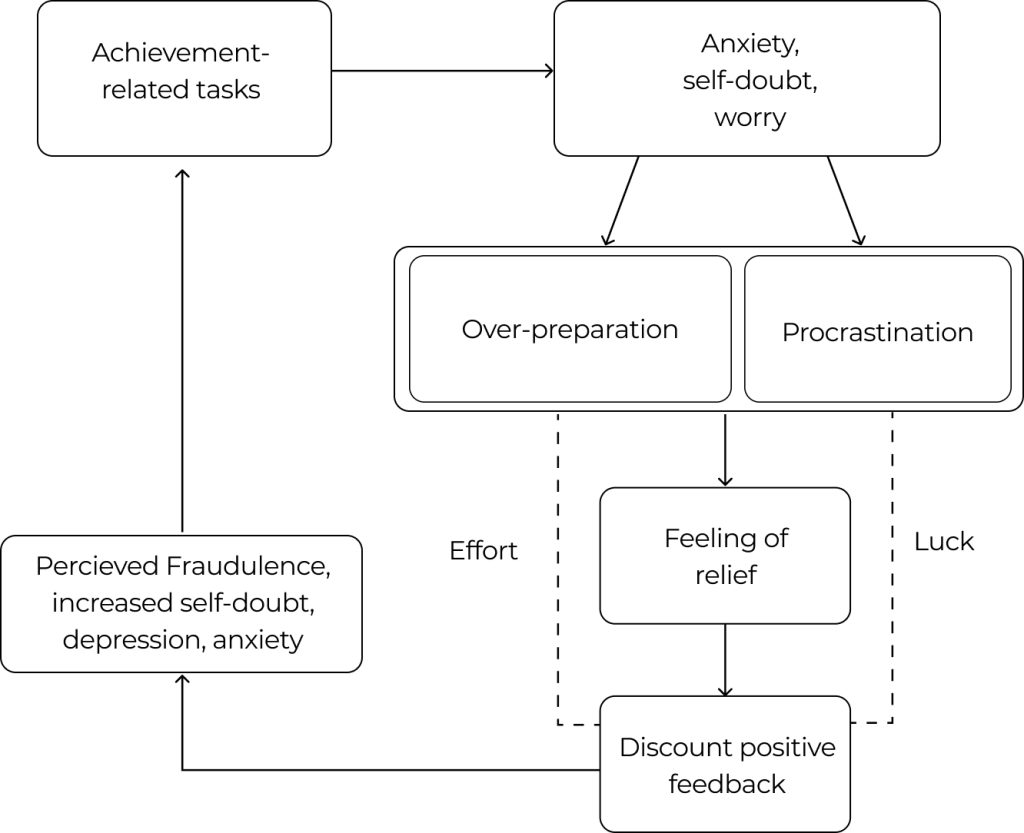Table of Content
Penelope Cruz once shared her internal struggles in a CBS interview saying that every time she’s making a movie she feels like lying to everyone. Every time she has a fear that she isn’t good enough and she is going to be fired. That’s what impostor syndrome feels like.
Perhaps you’ve experienced such a feeling. Have you ever thought that all your achievements are just lucky coincidence, or the fact that you were hired at all is a miracle? Have you had a fear that everyone is going to find out about your incompetence when you’re in fact a professional? Probably you have the same problem as Penelope. We’re going to tell you what helps people cope with this syndrome and how they succeed. After all, the actress managed to overcome impostor feelings. You’re no worse.
What is impostor syndrome?
There is no impostor syndrome in the International Classification of Diseases (ICD). The term was introduced in an article published in 1978 by Pauline R. Clance and Suzanne A. Imes. Later the phenomenon became the subject of psychological research. Today it’s studied as a reaction to particular stimuli and events.
There are several reasons why impostor syndrome may occur. If you’re hard on yourself, tend to be a perfectionist, want to seem smart in the eyes of others and your family has big plans for you (“He will become an excellent economist!”) – most likely, there’s every chance that one day you’ll find out what it is.
How can I diagnose myself with impostor syndrome?
In “The Impostor Phenomenon: When Success Makes You Feel Like a Fake”, Pauline Clance explained that impostor phenomenon can be distinguished by the following six characteristics.
1. The “impostor cycle”
A person with this syndrome goes through several stages. The cycle starts once an individual faces a complicated task. Usually this goes one of two ways: “impostors” either do their work as thoroughly as possible or procrastinate all day and get things done right before the deadline. With accomplishment, an “impostor” experiences short-term relief which is quickly replaced by another portion of self-doubt.
It may seem that impostor syndrome helps a lot as things are done properly. In fact, such activity takes a lot of time and effort. Does an individual get pleasure? No. Has a person been going above and beyond for years? Definitely yes.

2. The need to be the best
Usually “impostors” want to become better than their surroundings. Besides, if anyone outdoes them (even if it was a completely different activity), they feel like total losers.
3. High standards
“Impostors” are likely to define incredible and sometimes even impossible goals. They set such a high bar that often get upset and frustrated when things don’t work out. At the same time, they blame themselves for not living up to their own expectations.
4. Fear of failure
For “impostors” there is practically nothing worse than their own mistakes. They don’t want to be losers, therefore are ready to do their work very carefully.
5. Denial of ability
You can be a very competent specialist (of course, because of the fear of making a mistake, an “impostor” is constantly improving his or her skills) and deny it. “Impostors” don’t acknowledge their achievements believing that they’re “just lucky”.
6. Fear of success
Ironically, when “impostors” excel in something, they self-sabotage their own success. Moreover, they feel guilty and try to distance themselves from people. “Impostors” are also afraid to climb a career ladder as they fear not to live up to others’ expectations.
How to deal with impostor syndrome?
To begin with, stop thinking as an “impostor”. Valerie Young, the expert on this syndrome, explained how people without impostor feelings react to achievements and mistakes:
– People without impostor syndrome are willing to get feedback as it’s their important learning tool;
– The motive for development isn’t a fear of being imperfect, but a desire to become better;
– Mistakes are a part of life. They demonstrate that you’re not afraid to push yourself to try new things and grow. If you don’t hit a particular goal now, it doesn’t mean that you won’t achieve it after 10 attempts;
– It’s not a shame if something doesn’t work out. It’s upsetting if you don’t accomplish achievements but people without impostor syndrome don’t feel like losers.
– People aren’t afraid to ask for help. If someone knows better, it’s worth learning from their experience;
– If a person without impostor feelings experiences anxiety before an upcoming event, he or she realizes that it’s a natural reaction, while “impostors” consider themselves unworthy.
What else is worth learning?
Stop focusing on your fears.
Concentrating on fears prevents you from achieving objectives. Sometimes, in order to solve a problem, it’s better to spend energy on particular actions, and not on inner fears.
Separate feelings from facts.
You can be a good specialist but feel like you’re stupid. Give yourself a reality check and don’t mix feelings and facts.
Control perfectionist habits.
Let’s admit that sometimes perfectionism can be seen as a positive. However, not always. Don’t waste your energy if it’s not worth it.
Treat mistakes as learning opportunities.
We’ve already mentioned that mistakes are a chance to correct them and learn new things. Let’s repeat it again. There is no success without making mistakes.
Change your attitude.
It might be difficult. Probably you’ll have to seek a therapist’s assistance. But you should get rid of “I should always be the best” or “I can’t make mistakes”.
Praise yourself more often.
It’ll help you stop worrying and feeling like a loser. After all, you put so much effort every day! Pay attention to it, then there will be less procrastination and more effective work.
If you find yourself while reading this article, try not to avoid changes and start moving in a new direction now. The best thing to do is to talk to a psychologist or a psychotherapist. Don’t be afraid that you’ll do something wrong again, just start!
